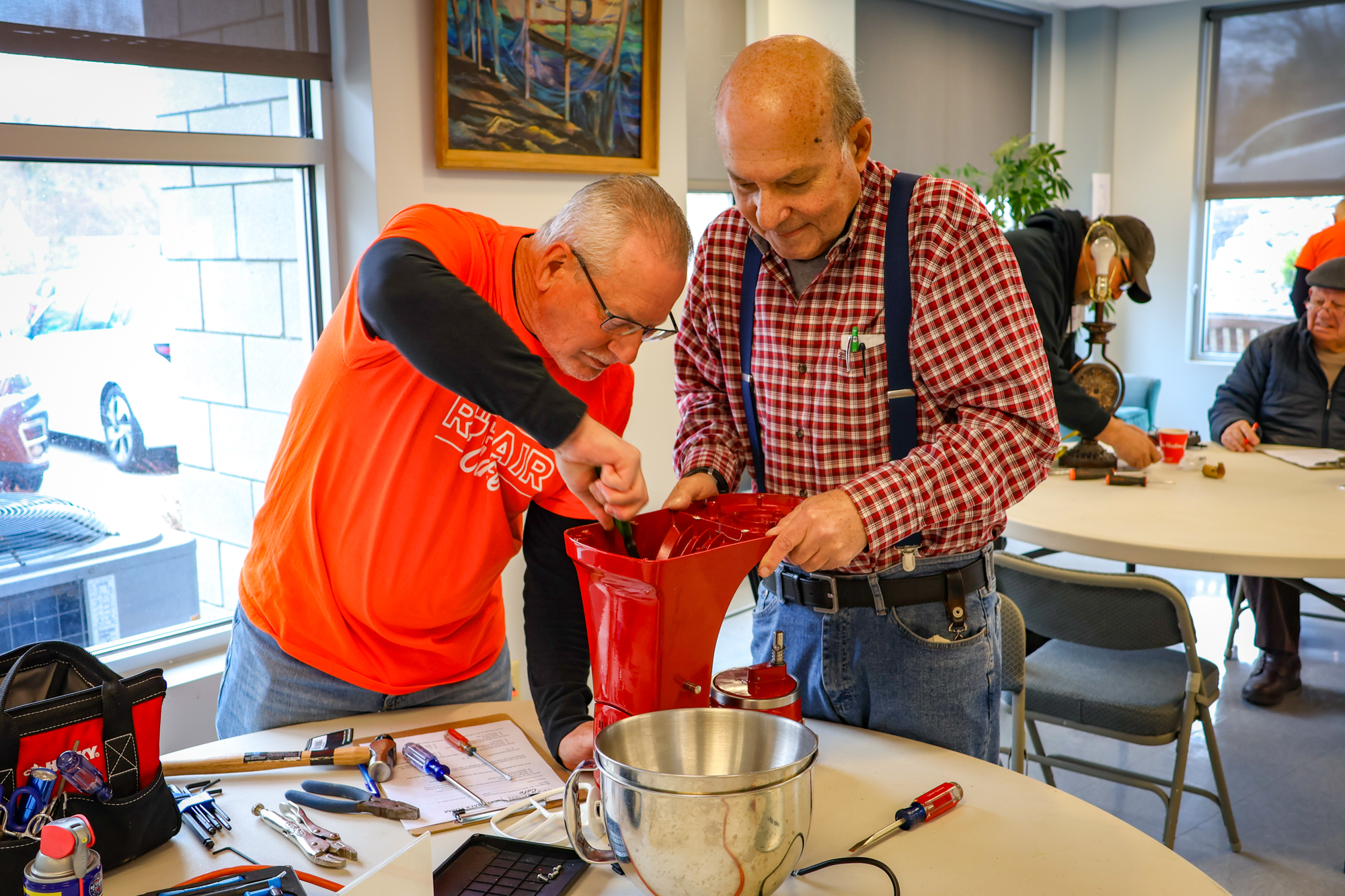Meet Jack, a dedicated Tool Library fixer. A retired operations executive, Jack’s fixer expertise was cultivated in his father’s basement workshop during childhood. Volunteering at our Dare to Repair Cafes, as well as helping us fix tools at our shop, became a natural extension of his passion for fixing things and reducing waste.
What motivated you to become a volunteer fixer at the Tool Library, and how has the experience been?
- I was looking for ways to share my talents in retirement and stumbled onto a site that identified volunteer opportunities in Buffalo. The Tool Library sounded like a great concept and appealed to my interests. I have participated in numerous Dare To Repair Cafes over the past few years and really enjoy sharing my skills with others that have items they are trying to fix. It is great to see the happy faces of people that just had something successfully repaired!
How has being a volunteer fixer impacted your own perspective on consumption, waste, and sustainability?
- I have always been highly motivated to fix things rather than throw them out (primarily as a way to use/improve my skills). As a DTR volunteer, I now have the added motivation of decreasing waste and promoting reuse.
What’s your day job? Where did your “fixer” knowledge come from?
- I am a retired operations executive with experience in the automotive, consumer goods and software industries. Although I have a degree in Mechanical Engineering, my practical experience as a fixer was developed as a kid, working every night with my Dad in his basement workshop. My Dad could fix anything and taught me the basics of mechanical and electrical troubleshooting and repair.
Are there any common challenges or recurring issues you often encounter while repairing tools or household items?
- I have found that more often than not, the problem is related to a simple cause. Things like bad plugs, frayed cords, broken switches or blown fuses. Yes, motors do fail, but (especially in small electrical appliances) the problem is typically related to something simple.
What advice would you give to someone interested in learning how to fix tools or household items themselves?
- I would encourage them to attend Dare To Repair Cafes and shadow different fixers to observe their troubleshooting process and to get familiar with some basic repairs. I would also suggest that they start with mechanical repairs and only the simplest electrical repairs until they are confident they know what they are doing. YouTube can be a great source of video tutorials but keep in mind that you don’t have to be a good fixer to make a video!
What’s your favorite tool?
- I would say that “common sense” is an essential tool in troubleshooting and making repairs. If you don’t follow a logical path toward diagnosing the problem, it will be very difficult to determine and implement the proper repair. As for more traditional tools, a “multimeter” is a go-to tool for basic electrical troubleshooting!
Thanks for all you do for the Tool Library and our community, Jack!

